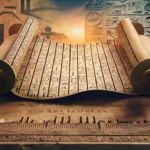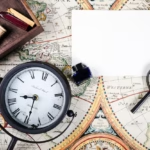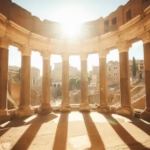History is more than just a collection of dates, events, and figures—it is the foundation of everything we know, believe, and experience. The past, in many ways, shapes our present and continues to influence our future. From the structures of government to social norms, cultural traditions, and technological advances, the echoes of history are felt in nearly every aspect of life today. Let’s explore how history continues to influence us across various dimensions.
1. Political Systems and Governance
The political systems we operate under today are deeply rooted in the ideas, struggles, and decisions made throughout history. Concepts such as democracy, monarchy, and socialism have evolved over centuries, and many of the laws and structures in place today are based on past governance models.
For example, the U.S. Constitution, drafted in 1787, draws on ideas from the Enlightenment, such as the works of philosophers like John Locke, Montesquieu, and Rousseau. Even the modern concept of human rights is shaped by the historical struggles of people throughout the ages, from ancient civilizations to the more recent abolition movements, suffrage campaigns, and civil rights struggles.
2. Social and Cultural Norms
Societal norms and cultural values are not static; they evolve over time, influenced by the events and ideologies of the past. For instance, the Renaissance sparked a revival in art, science, and philosophy that continues to impact our worldview. Many of the great artists, scientists, and thinkers of that era set the stage for the modern world’s appreciation of individualism and intellectual exploration.
The Civil Rights Movement of the 20th century in the United States profoundly impacted how issues of race, equality, and justice are approached today. Movements like these, as well as the global fight for gender equality, LGBTQ rights, and Indigenous rights, continue to challenge and reshape social norms.
3. Economic Systems
The economic systems we use today—capitalism, socialism, and mixed economies—have all been shaped by historical events like the Industrial Revolution, the rise of colonial empires, and the formation of global trade networks. The effects of these systems are still visible today in everything from the globalized economy to the ongoing debates about wealth inequality.
The legacy of colonialism, for example, continues to affect countries around the world, with many nations dealing with the long-term economic consequences of exploitation and unequal trade relationships. These historical experiences have helped shape modern economic policies and the distribution of wealth on a global scale.
4. Technology and Innovation
History has also influenced the technological advancements we enjoy today. Ancient civilizations, such as the Egyptians, Greeks, and Romans, made groundbreaking advancements in engineering, architecture, and mathematics that laid the foundation for modern science and technology. The invention of the printing press in the 15th century by Johannes Gutenberg revolutionized the spread of knowledge and ideas, accelerating the pace of technological development.
In the modern era, the industrialization that began in the 18th century and the digital revolution that started in the late 20th century have created massive changes in how we live, work, and communicate. Many of the technologies that seem commonplace today—smartphones, the internet, AI—are the direct result of centuries of incremental innovation.
5. Conflict and War
The impact of war and conflict cannot be overstated in understanding the trajectory of human history. The outcomes of wars, from the World Wars to regional conflicts, have shaped the political, economic, and social structures of the modern world.
World War I, for example, led to the downfall of empires and the redrawing of national borders, setting the stage for geopolitical conflicts throughout the 20th century. World War II established the United States and the Soviet Union as superpowers and led to the creation of international organizations like the United Nations, which still play a role in global diplomacy and conflict resolution today.
Even in the current era, the consequences of wars fought in the past still ripple through global politics and international relations.
6. Identity and Memory
Our personal and collective identities are also shaped by history. Cultural heritage, family histories, and national identities are deeply intertwined with the past. Memorials, museums, and holidays commemorate important events, battles, and individuals, ensuring that historical memory is preserved and passed down to future generations.
The act of remembering and interpreting history influences how communities and societies view themselves. For example, national identity in countries like France, the United States, and India is strongly linked to key historical events such as revolutions, independence movements, and the struggles for freedom.
7. Environmental Legacy
Our relationship with the environment is also a reflection of historical decisions. The agricultural revolution, the rise of industrialization, and the exploitation of natural resources over centuries have had lasting effects on the environment. Issues like climate change, deforestation, and pollution can often be traced back to the industrial era and the ways humans began to extract and use resources on a massive scale.
The history of human interaction with nature informs current environmental policy, as governments and organizations try to address the problems created by centuries of unsustainable practices.
Conclusion: The Unbroken Thread of History
History is not a static or isolated series of events. Instead, it is a continuous thread that connects the past, present, and future. The decisions, triumphs, and failures of those who came before us resonate in the choices we make today, shaping everything from political policies to technological developments, social values, and economic systems.
By understanding the ways in which history has shaped our world, we can better understand ourselves and the challenges we face. The past continues to offer valuable lessons, cautionary tales, and inspiration as we navigate the complexities of the present and look toward the future.




